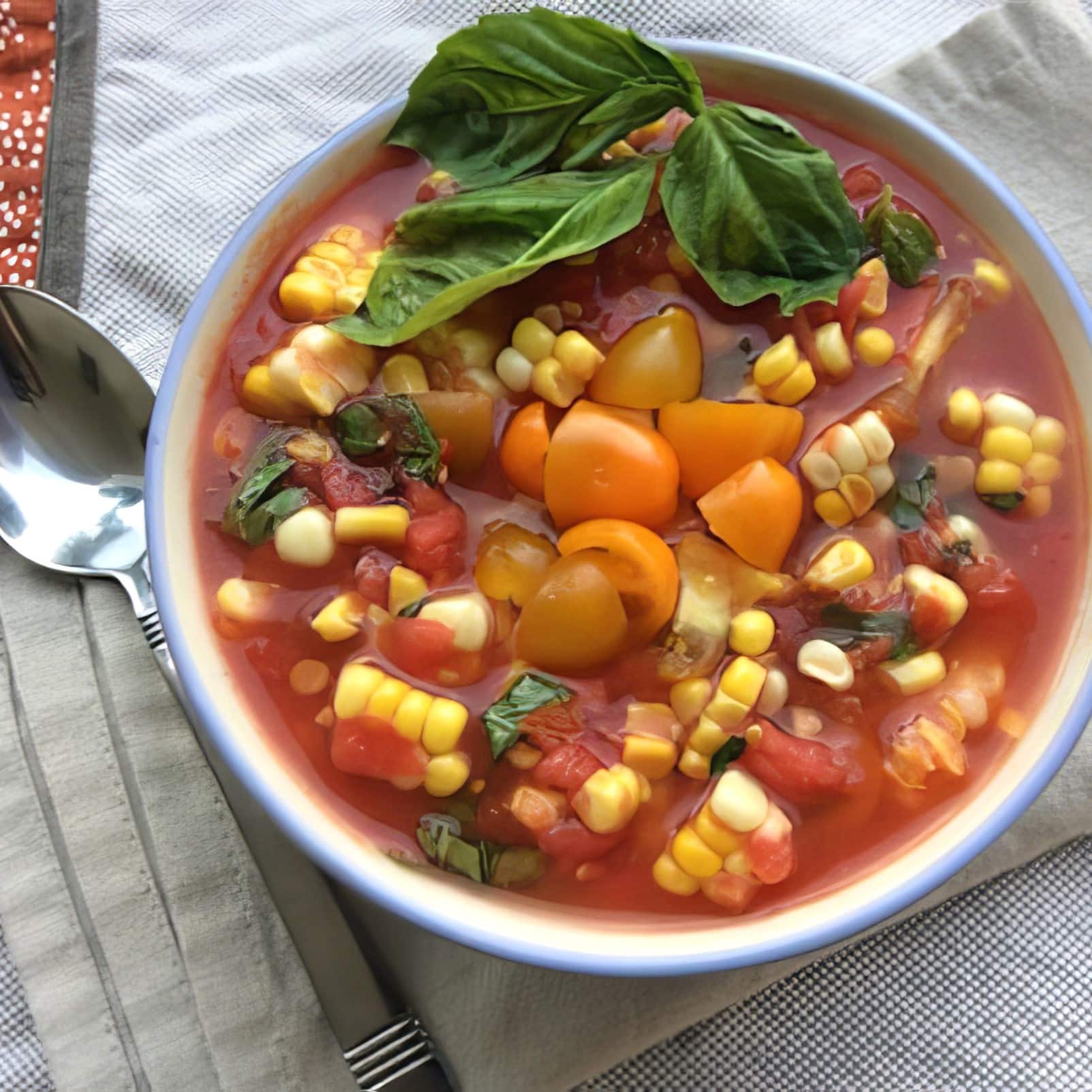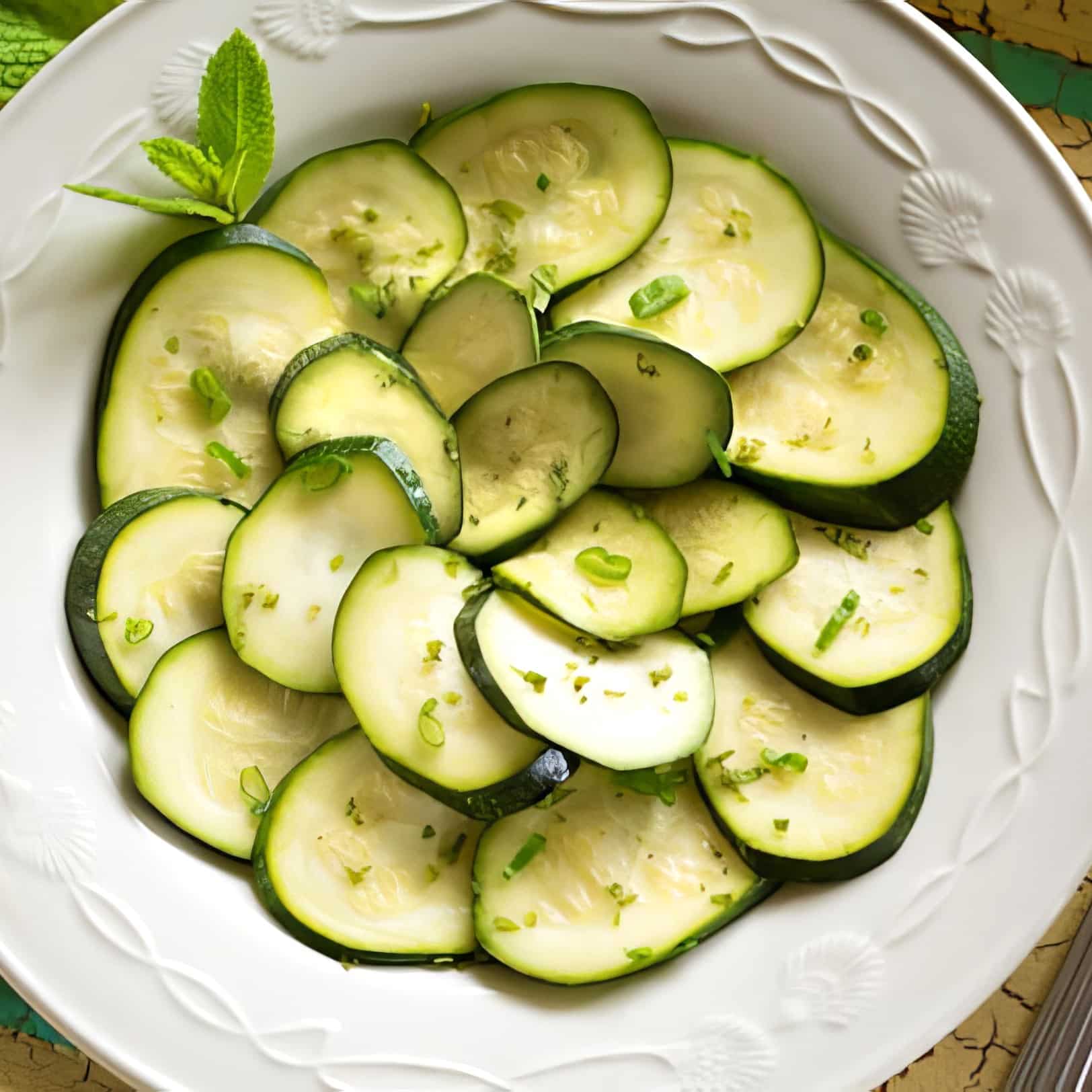Cholent is a Jewish classic that can be considered an early predecessor to slow-cooker recipes. In its original form, it’s put in the oven before the Sabbath and cooked at a very low temperature for about 12 hours so that it can be eaten for the Sabbath midday or late afternoon meal. It’s one of the rare Eastern European Jewish specialties that highlights beans. There is a Sephardic cousin to this recipe called hamin.
With seitan standing in for the beef used in the original, it’s a warming, hearty dish. This makes a plentiful portion, which makes it perfect for company; you can also freeze it in portions for future use. For a smaller family, or for two, cut the recipe in half. Adapted from Vegan Holiday Kitchen by Nava Atlas.
Recipe

Vegan Cholent
Ingredients
- ¾ cup pearl barley
- 2 tablespoons olive oil
- 1 large onion finely chopped
- 3 cloves garlic minced
- 1 ½ pounds to 2 pounds seitan cut into bite-sized pieces (see note for gluten-free option)
- 4 medium white potatoes peeled and diced
- 3 to 4 medium carrots peeled and sliced
- 1 pound ripe juicy tomatoes, diced, or one 14- to 16-ounce can diced tomatoes
- ½ cup dry red wine
- 3 ½ cups cooked small red beans or two 15- to 16-ounce cans, drained and rinsed
- 1 tablespoon sweet paprika
- 1 teaspoon Spanish smoked paprika or cayenne pepper to taste
- ⅓ cup minced fresh parsley
- Salt and freshly ground pepper to taste
Instructions
- Combine the barley in a saucepan with 1 ½ cups water. Bring to a gentle boil, then lower the heat, cover, and simmer until the water is absorbed, about 35 minutes. This won’t cook the barley completely, but will give it a head start as it’s added to the stew.
- Heat the oil in a large soup pot. Add the onion and sauté over medium-low heat until translucent. Add the garlic and seitan. Continue to sauté over medium heat, stirring frequently, until the seitan begins to brown lightly.
- Add the barley, potatoes, carrots, tomatoes, wine, and 4 cups water. Bring to a gentle boil, then lower the heat, cover, and simmer gently for 20 minutes.
- Add the beans and paprika. Cook over the lowest heat possible, stirring occasionally, for about an hour, or until the barley and vegetables are tender and the flavors well married. Add more water as needed to keep moist; this should be thick and stew-like, rather than soupy.
- Stir in the parsley and season with salt and pepper. Cook over very low heat for 5 minutes longer. If time allows, let this stand off the heat for an hour or two before serving to further develop flavor, then heat through gently. Otherwise, serve at once.
- /2 1
Nutrition
-
Note: If you'd like to make this gluten-free, you can substitute two 8-ounce packages tempeh (prepare just as directed for the seitan in the recipe), cut into large dice. Make sure the tempeh is gluten-free, though, as some varieties are mixed with grains. You can also use your favorite gluten-free meat substitute or jackfruit.
Tips for cooking cholent in a slow cooker
VK contributor Robin Robertson provided the following instructions for making cholent in a slow cooker—a modern segue for an age-old recipe:
The first step is optional but worth using an extra pan, to achieve added flavor: In a skillet, sauté the onion, garlic and seitan as directed in the second paragraph of the recipe instructions, then set aside. (Hint: some newer slow cookers allow you to go from stovetop to slow cooker, in which case the skillet is unnecessary.)
Either way, proceed by combining all the ingredients except the parsley in a 6- to 7-quart slow cooker (including about 2 ½ cups of water—you’ll need less water than the stovetop method).
Cover and slow-cook on LOW for 6 to 8 hours or until the vegetables are tender. Gently stir about halfway through, if possible, to make sure the harder vegetables (carrots, etc.) are submerged in the cooking liquid. During the last hour of cooking, add the parsley and check the seasonings. If a bit more moistness is needed, add ½ cup or so additional water If the cholent is cooked before you’re ready to eat, turn your slow cooker to the “KEEP WARM” setting.








Comments
No Comments